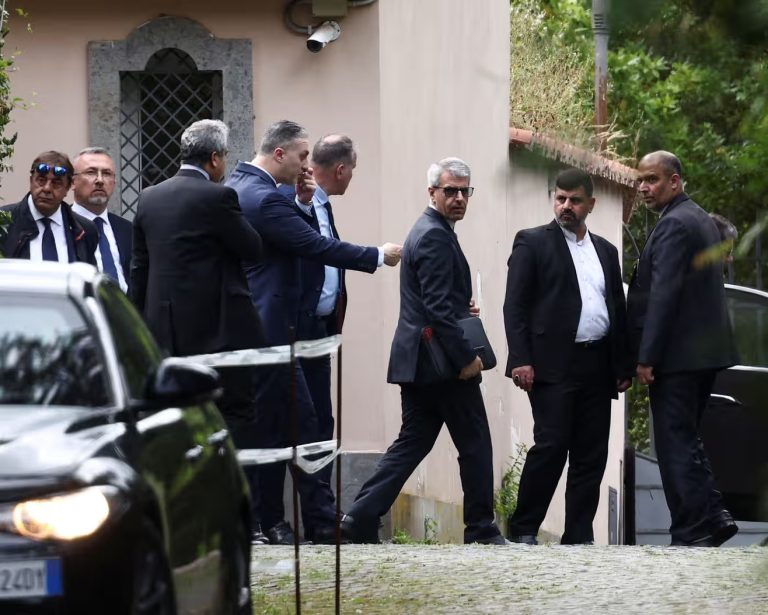Negotiations between Iran and the United States over Iran’s ability to continue uranium enrichment on its soil have concluded without reaching an agreement, though the feared collapse of talks was avoided.
These indirect discussions, facilitated by Oman, took place in Rome.
Iran’s foreign minister, Abbas Araghchi, stated late Friday, “I hope in the next one or two sessions we can find solutions to help move the talks forward. Oman’s proposals to clear obstacles offer a chance for progress, but these negotiations are highly complex and unlikely to be resolved quickly.”
The Omani foreign ministry issued a statement expressing hope that outstanding issues would be clarified soon, paving the way toward a sustainable and respectful agreement.
The talks come amid repeated threats from Israel to strike Iran’s nuclear facilities. Israel remains deeply concerned that Iran is developing nuclear weapons, disputing Tehran’s insistence that its nuclear program is solely for civilian purposes.
Gulf states have reportedly conveyed to former President Donald Trump their desire to avoid any new Middle East conflict triggered by an Israeli attack on Iran. Meanwhile, the U.S. has displayed an unexpected openness to reaching a deal with Tehran. Before the talks, Washington insisted that Iran must be prevented from enriching uranium domestically—a red line—while Iran argued that as a signatory to the Nuclear Non-Proliferation Treaty, it cannot be singled out and barred from continuing its uranium enrichment program.
Iran has proposed strict limits on the size of its uranium stockpile and its level of enrichment purity.
The sharp public disagreements on enrichment had raised fears that this fifth round of negotiations might collapse, creating unpredictable risks for the region.
Although Oman did not immediately announce when the next round would take place, there appeared to be a shared understanding that talks would continue. Oman’s foreign minister, Badr Albusaidi, noted on X that “some progress” was made, though it was not conclusive.
Countries like the United Arab Emirates, which maintain small nuclear programs reliant on imported uranium, have suggested Iran might follow suit. However, Iran sees itself differently, citing the heavy toll of U.S. sanctions endured in pursuit of what it maintains is a peaceful civilian nuclear program. Tehran insists on its sovereign right to enrich uranium and points to Israel’s undeclared nuclear arsenal, which the U.S. does not demand be dismantled.
Some mediators have floated alternative proposals: Iran might pause enrichment for a defined period or, alongside domestic enrichment, form a civil nuclear partnership with Saudi Arabia to increase transparency and confidence in its program’s peaceful intent.
In an unexpected move, Steve Witkoff, the U.S. chief negotiator, left the talks early. Unlike Iran, the U.S. issued no immediate statement following the meeting. Prior to the talks, Witkoff met with Israeli officials, including Mossad chief David Barnea, as part of ongoing consultations linked to the Iran negotiations.

